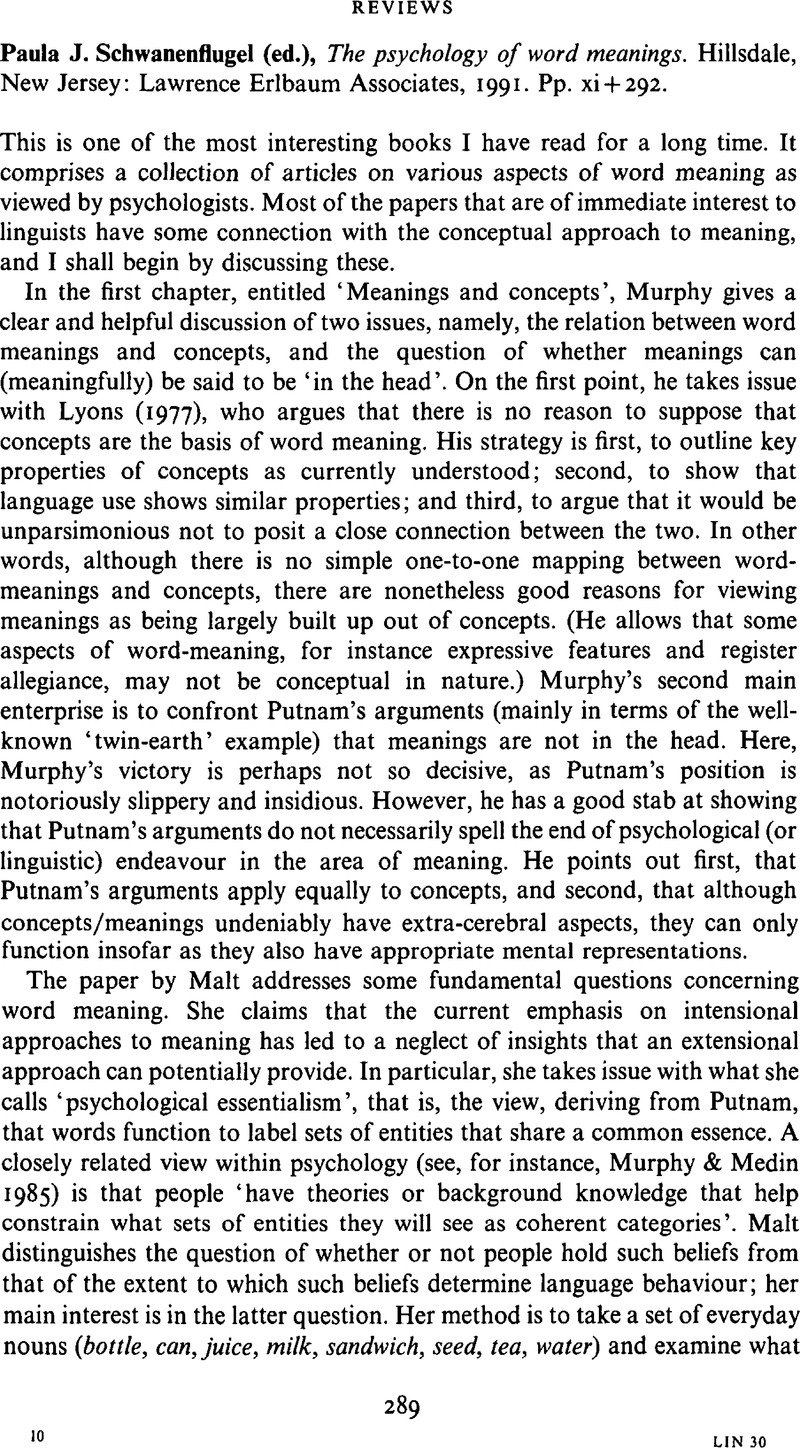No CrossRef data available.
Article contents
Paula J. Schwanenflugel (ed.), The psychology of word meanings. Hillsdale, New Jersey: Lawrence Erlbaum Associates, 1991. Pp. xi + 292.
Review products
Paula J. Schwanenflugel (ed.), The psychology of word meanings. Hillsdale, New Jersey: Lawrence Erlbaum Associates, 1991. Pp. xi + 292.
Published online by Cambridge University Press: 28 November 2008
Abstract
An abstract is not available for this content so a preview has been provided. Please use the Get access link above for information on how to access this content.

- Type
- Reviews
- Information
- Copyright
- Copyright © Cambridge University Press 1994
References
Barsalou, L. W. (1987). The instability of graded structure: implications for the nature of concepts. In Neisser, U. (ed.) Concepts and conceptual development: ecological and intellectual factors in categorization. New York: Cambridge University Press. 101–140.Google Scholar
Cruse, D. A. (1990). Prototype theory and lexical semantics. In Tsohatzidis, S. L. (ed.) Meanings and prototypes: studies in linguist categorization. London: Routledge. 382–402.Google Scholar
Lakoff, G. (1987). Women, fire and dangerous things: what categories reveal about the mind. Chicago: University of Chicago Press.CrossRefGoogle Scholar
Murphy, G. L. & Medin, D. L. (1985). The role of theories in conceptual coherence. Psychological Review 92. 289–316.CrossRefGoogle ScholarPubMed
Osherson, D. N. & Smith, E. E. (1981). On the adequacy of prototype theory as a theory of concepts. Cognition 9. 35–58.CrossRefGoogle ScholarPubMed
Putnam, H. (1975). The meaning of ‘meaning.’ In Putnam, H.Mind, language and reality: philosophical papers (vol. 2). Cambridge: Cambridge University Press.CrossRefGoogle Scholar


